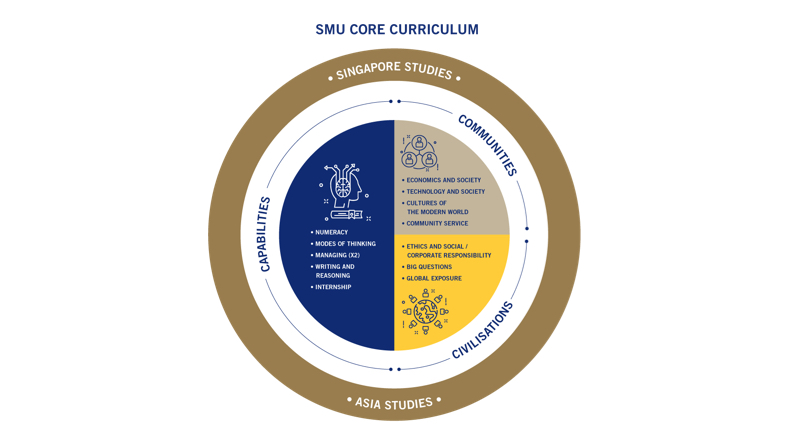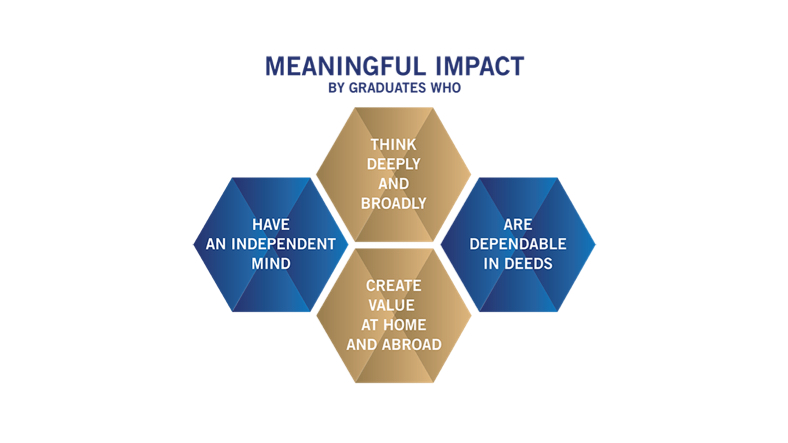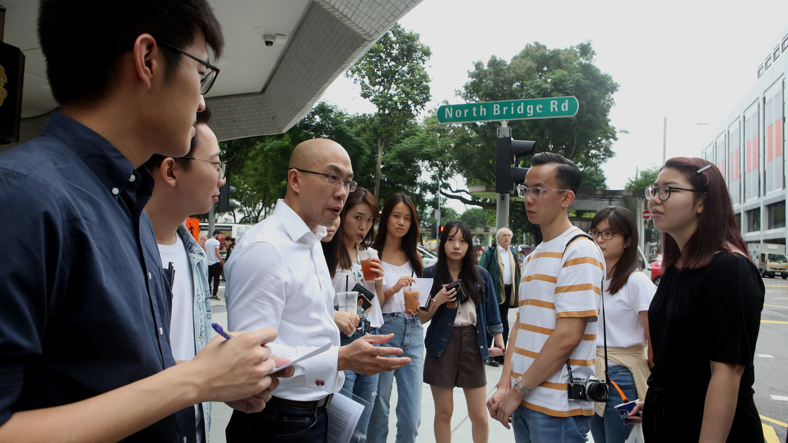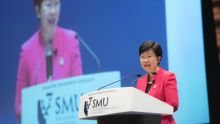
SMU has enhanced its undergraduate curriculum to nurture graduates who can deliver meaningful impact globally, and to ensure that students achieve a holistic educational journey during their time at SMU.
This is all thanks to a one-year study by the University’s Blue Ribbon Commission on Undergraduate Education, which comprised faculty members across disciplines and administrative personnel, who also sought the views of key stakeholders of the University and studied best practices of leading global universities.
A key highlight is the redesign of the SMU Core Curriculum, to be implemented from Academic Year 2019-2020, into three inter-related pillars of learning — Capabilities, Communities and Civilisations, as well as the integration of internship and community service into the Core Curriculum as credit-bearing programmes.

“SMU aspires to deliver transformative education for a new generation of students that empowers them to create meaningful impact at home and abroad. These enhancements are designed to generate an educational milieu that is conducive and directed towards nurturing graduates with identities which are distinctively SMU,” said SMU President, Professor Lily Kong, who chaired the Commission.
The three Pillars:
- The Capabilities pillar (comprising 6 credit units) aims to equip a student with specific competencies and skills to navigate and thrive in an increasingly complex, digitised and data-driven working environment. Courses include Critical Thinking, Innovation & Creative Thinking and Business Modelling & Analytics. The enhanced credit-bearing Internship learning programme is offered here as well.
- The Communities pillar (comprising 4 credit units) focuses on helping students better understand the economic, technological and cultural systems that form interactions within our communities, in Singapore and around Asia. Courses include Economics & Society, Artificial Intelligence & Society, Digital Cultures, Urban Cultures and a selection of foreign language units. The credit-bearing Community Service learning programme is offered under this pillar.
- The Civilisations pillar (comprising 2 credit units) immerses students in perennial debates that cut across time and space, and encourages students to partake in critical dialogue between multiple and competing traditions of thought and problem-solving. Courses include Ethics & Social Responsibility and Big Questions with a focus on topics such as Happiness and Suffering, and Wealth and Poverty. There are also opportunities for global exposure through the course units.
Through the redesigned Core Curriculum, SMU hopes to nurture distinctive identities in its graduates. “We want to develop graduates who are able to think deeply and broadly, and at the same time, act to create value at home and abroad; have an independent mind and at the same time are collaborative and dependable in deeds,” explains Professor Kong.

Promoting multi-disciplinary learning and expanding horizons
Further to the changes in its Core Curriculum, SMU will also introduce a new Exploratory Course scheme to encourage students to experiment with courses outside of their major or their usual sphere of interest. The University already offers significant flexibility through its double degree and second major programmes. From AY2019-2020, students will have the added option of declaring up to two of their passed letter grades to be excluded from their cumulative Grade Point Average (cGPA) computation.
Recognising the value of longer internship durations which enable students to better interlace institution-based learning with structured on-the-job training, SMU will pilot a work-study option. This will give students the option of alternating between working at least four days a week at their internship and studying on campus for up to one day a week, over six months during an academic term. This work-study option will begin with the Health Economics and Management major, which is conducted in collaboration with SingHealth, Singapore’s largest group of healthcare institutions.
Since its inception, interactive pedagogy, experiential learning and personal learning have been hallmarks of the SMU education. The University plans to leverage technology to enhance each of these three pedagogical approaches. A three-year technology-enhanced learning roadmap is in place to develop innovative projects that have a strong impact on teaching and learning, and desired learning outcomes.



